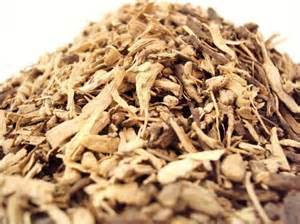Section 89 THIS REVELATION WAS NOT GIVEN AS A COMMANDMENT; LATER the second word of wisdom was change to a commandment: CONTROLLING pioneers and now saints has changed it intent thus its meaning. ( Is coffee better than the soda's of today? How about antibiotic, chemically treated meat i.e. or GMO grains?; Saint need to be in charge of their health to be in control of their own health and body's at time when needed.)
 |
| Tea is a healthy drink antioxides, vitamins, mineral's just cool it off and can be medicinal as it has always been from the beginning. (No capsules' were invented in history) |
This revelation given through Joseph Smith the Prophet, at Kirtland, Ohio, February 27, 1833. As a consequence of the early brethren using tobacco in their meetings, the Prophet was led to ponder upon the matter; consequently, he inquired of the Lord concerning it. This revelation, known as the Word of Wisdom, was the result. This is the second revelation which was changed from it original set to be a commandment.
1–9, The use of wine, strong drinks, tobacco, and hot drinks is proscribed; 10–17, Herbs, fruits, flesh, and grain are ordained for the use of man and of animals; 18–21, Obedience to gospel law, including the Word of Wisdom, brings temporal and spiritual blessings.
1 A Word of Wisdom, for the benefit of the council of high priests, assembled in Kirtland, and the church, and also the saints in Zion—
2 To be sent greeting; not by commandment or constraint, but by revelation and the word of wisdom, showing forth the order and will of God in the temporal salvation of all saints in the last days— LDS church has changed this part. What does Greeting mean? Not suppose to be a commandment? (This is temporal/ church makes it a spiritual meaning)
3 Given for a principle with promise, adapted to the capacity of the weak and the weakest of all saints, who are or can be called saints.
4 Behold, verily, thus saith the Lord unto you: In consequence of evils and designs which do and will exist in the hearts of conspiring men in the last days, I have warned you, and forewarn you, by giving unto you this word of wisdom by revelation—
5 That inasmuch as any man drinketh wine or strong drink among you, behold it is not good, neither meet in the sight of your Father, only in assembling yourselves together to offer up your sacraments before him.
8 And again, tobacco is not for the body, neither for the belly, and is not good for man, but is an herb for bruises and all sick cattle, to be used with judgment and skill.
10 And again, verily I say unto you, all wholesome herbs God hath ordained for the constitution, nature, and use of man—
11 Every herb in the season thereof, and every fruit in the season thereof; all these to be used with prudence and thanksgiving.
12 Yea, flesh also of beasts and of the fowls of the air, I, the Lord, have ordained for the use of man with thanksgiving; nevertheless they are to be used sparingly;
13 And it is pleasing unto me that they should not be used, only in times of winter, or of cold, or famine.
14 All grain is ordained for the use of man and of beasts, to be the staff of life, not only for man but for the beasts of the field, and the fowls of heaven, and all wild animals that run or creep on the earth;
16 All grain is good for the food of man; as also the fruit of the vine; that which yieldeth fruit, whether in the ground or above the ground—
17 Nevertheless, wheat for man, and corn for the ox, and oats for the horse, and rye for the fowls and for swine, and for all beasts of the field, and barley for all useful animals, and for mild drinks, as also other grain.
http://shermsorganicnews.blogspot.com/2013/08/is-your-meat-tainted.html
http://www.scn.org/~bk269/fear.html (more on meat killed in stress conditions)
"New directions" came out about this diet on coffee and tea i.e. (Deseret News and LDS.org)
http://shermsorganicnews.blogspot.com/2008/10/plant-based-diet-reversal-to-diseases.html
http://www.scn.org/~bk269/fear.html (more on meat killed in stress conditions)
"New directions" came out about this diet on coffee and tea i.e. (Deseret News and LDS.org)
http://shermsorganicnews.blogspot.com/2008/10/plant-based-diet-reversal-to-diseases.html

